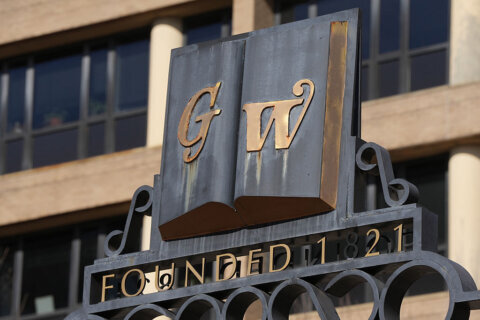After years of court battles, activists are still fighting to preserve historic McMillan Park and block redevelopment as demolition looms.
The 25-acre site along North Capitol Street Northwest in D.C. houses a sand-filtration water purification plant, and was used to store water underground for the District.
”Built at the turn of the century, the 19th century, to cure the city of waterborne illnesses, like typhoid,” said Chris Otten of the Save McMillan Action Coalition, which held signs in front of D.C. Superior Court on Friday, ahead of arguments over a restraining order to stop work on the site.
Otten and neighbors are concerned about additional traffic in the Bloomingdale neighborhood due to the planned redevelopment. Demolition could begin as early as next month, he said.
”It would mean 20,000 additional vehicle trips a day around the site, which if you go by right now is completely choking with traffic,” said Otten. “By their own experts’ numbers, 20,000 additional trips — there’s 38,000 cars there now — that’s almost double.”
The group is arguing the District has started demolition work before having all the permits required, but D.C. maintains the work being done is preliminary work, rather than the actual demolition.
”We want this to be a destination spot,” Otten said. “All the major cities are turning their old industrial sites into these vibrant visitor spots — that’s what we want.”
One portion of the McMillan facility is still being used by DC Water.
“As part of the response to the 2012 flooding in Bloomingdale, we repurposed one of the sand filtration cells at McMillan to temporarily hold stormwater during heavy rains,” said spokesman John Lisle. “We are still using that cell and will until the Northeast Boundary Tunnel Project is put in service — that could happen as early as 2023, and as late as spring 2025.”








